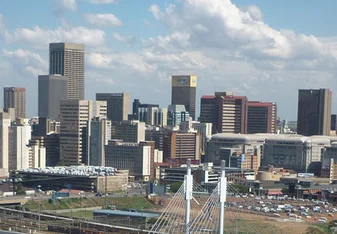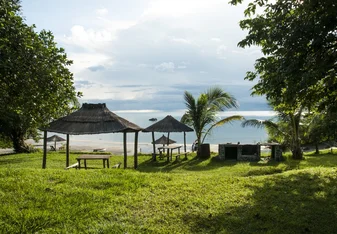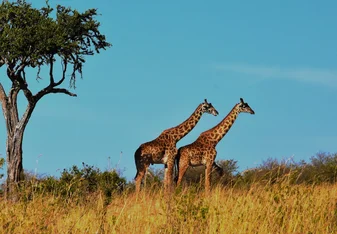Teach English in South Africa
Teaching Programs in South Africa
About
If you were to travel to the southernmost point of Africa, you would travel to Cape L’Agulhas, more commonly known as Cape Agulhas located in South Africa. It is just one point on the 2,500km South African coastline, extending both from a shared desert border with Namibia to subtropical Mozambique. Inland, various mountainous escarpments separate the low-lying coastline from the high inland plateau.
The geographic diversity of South Africa mirrors its population demographic history. Bantu-speaking natives who migrated to the area from other parts of Africa were the first inhabitants of South Africa.
The Europeans, who landed in South Africa, swiftly colonized the region in the 15th century, but South Africa gained freedom from its oppressors in 1931 and today functions under a constitutional democracy. Those who decide to teach in South Africa expose themselves to a rich beauty and vibrant history of South Africa, and will impact the future of this multicultural nation.
Since English is one of the eleven official languages in South Africa, the demand for paid TEFL positions is not very high. Although, students situated in underprivileged communities are often located in rural areas that do not have access to the same opportunities as urban communities. There is a demand for volunteer teachers to assist students within these rural areas. Foreign teachers with special skills such as mathematics, science and technology are always in demand.
In order to teach English in South Africa, most teachers will require a bachelor’s degree and/or TEFL certification. The average salary for teaching in South Africa is $900 - $1,500 per month.
Job Types
Public Schools:
Teachers in mathematics, science, or technology are in high demand. In 2008, the Republic of South Africa launched a campaign to recruit foreign educators, as there was a shortage of mathematics, science and technology educators. As of 2011, there was still a shortage of teachers concentrating in these subject areas because more teachers leave these fields every year. According to the Basic Education Department, roughly 10,000 teachers leave every year, and only about 6,000 graduate. The result is the call for foreign teachers, though these have mainly been from several countries outside the North American region. Of the 5,400 foreign teachers that work in public schools in South Africa, about 3,796 are from Zimbabwe.
International & Language Schools:
Not only public schools are recruiting foreign teachers. Language centers, such as International House Johannesburg and international schools, such as the American International School of Johannesburg, are also looking beyond the borders of South Africa to meet the demand for teachers. However, the criteria to teach in international schools are more rigorous than that of public schools. For example, in order to apply as a foreign teacher in the American International School of Johannesburg you must have at least two years of teaching experience before being considered.
Private Lessons:
Educators residing in South Africa have also noticed the demand for teachers and have started private lessons for younger peers. For example, on South African classifieds websites, you can put up personal ads displaying information regarding how much you charge for private lessons, and where in the country you are located.
Finding a Job
When and Where to Look for Jobs:
South Africa’s need for teachers concentrating in mathematics, technology and science means the flow for peak hiring times is constant, however, the process for becoming eligible to teach in South Africa requires proof of permanent residence.
Qualifications:
If you wish to work as a qualified teacher South Africa, you must register as an educator through the South Africa Center for Education or (SACE). Foreign qualifications must be cleared through South African Qualifications Authority (SAQA). In order to be considered, one must complete an app form and submit it with SACE with:
- An evaluation report for employment in education from Department of Basic Education: Educator Qualifications and Programmes Section
- A work permit stating they are permitted to teach in South Africa
- Proof of permanent residence and non-South African identity document
- Proof of pending employment by a school in South Africa
There are eleven official languages of South Africa, and English is among them. Some programs offer perfecting South African professionals’ English accents to develop their fluency. Thus, many employers prefer native speakers.
Salary & Cost of Living:
The monthly average salary of a foreign teacher ranges according to the level of professionalism. Professor salaries at public universities equate to about $9,330 USD per month, while new teachers just starting out only make about $1,020 to $1,883 USD per month. Independently run private lessons can range from about $12 to $21 USD per hour.
Most of the time, housing and airfare are not included in teaching jobs. Teachers may find housing if they choose to work at an international school, but this is not always provided. It is always important to research various online databases in regard to housing before committing to working at a school.
Classroom & Work Culture:
From daily routine to culture shock, foreign teachers must adjust to life South Africa. Among these adaptations is becoming familiar with a new work environment. School days typically start at 7:30am and last until 2:30pm. The school year runs the entire year, from early January to December. With a break between January and December, it is likely that most schools would hire during this time period.
Under the apartheid education system student-teacher relations were much more formal than they are today. Teachers had the right to use corporal punishment, an act that is now illegal in all South African schools.
Now, students have legally-defined rights within the classroom. Teachers are expected to be authoritative, though on less of a caliber than what took place under apartheid. Students enjoy a closer relationship with teachers whose job it is to now facilitate student rights. Students must adhere to certain rules and regulations, and are talked about more positively (as opposed to in the apartheid education system).
Wearing uniforms within public schools and most private schools is compulsory for students. Most South Africans shake hands, although some women may decide to nod their head as opposed to shaking hands. Some men kiss women they know well on the cheek.




























